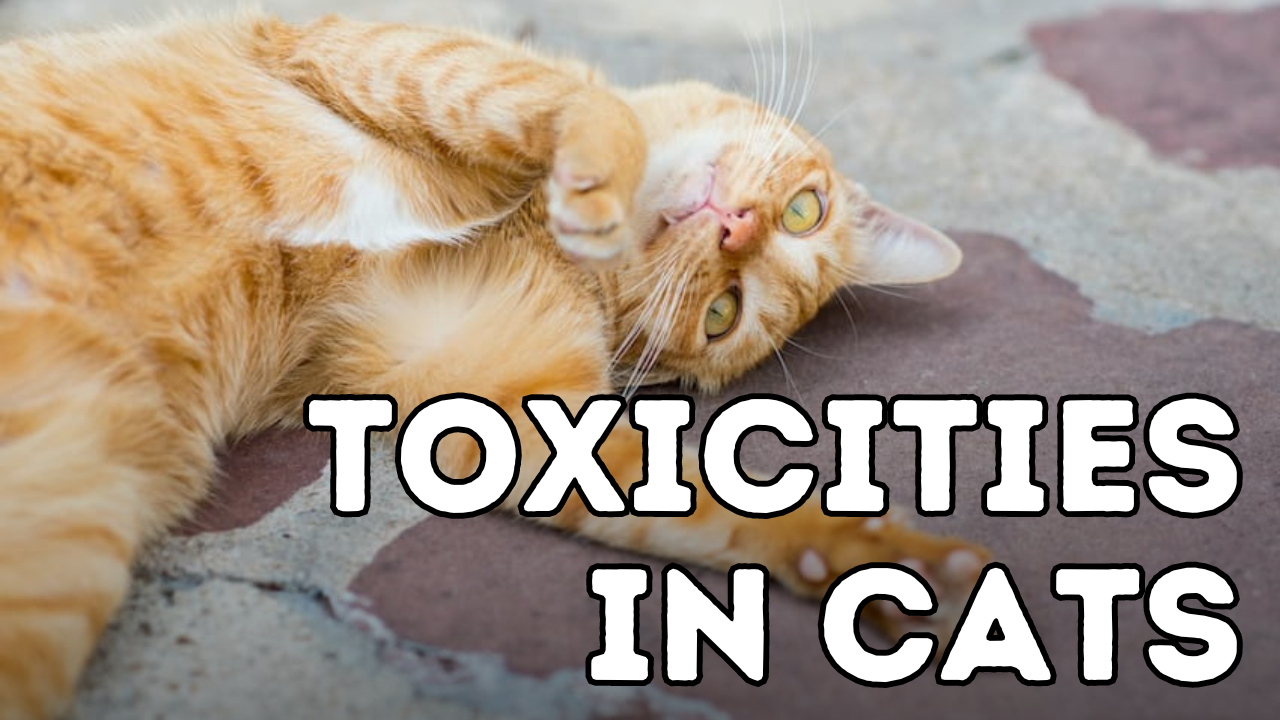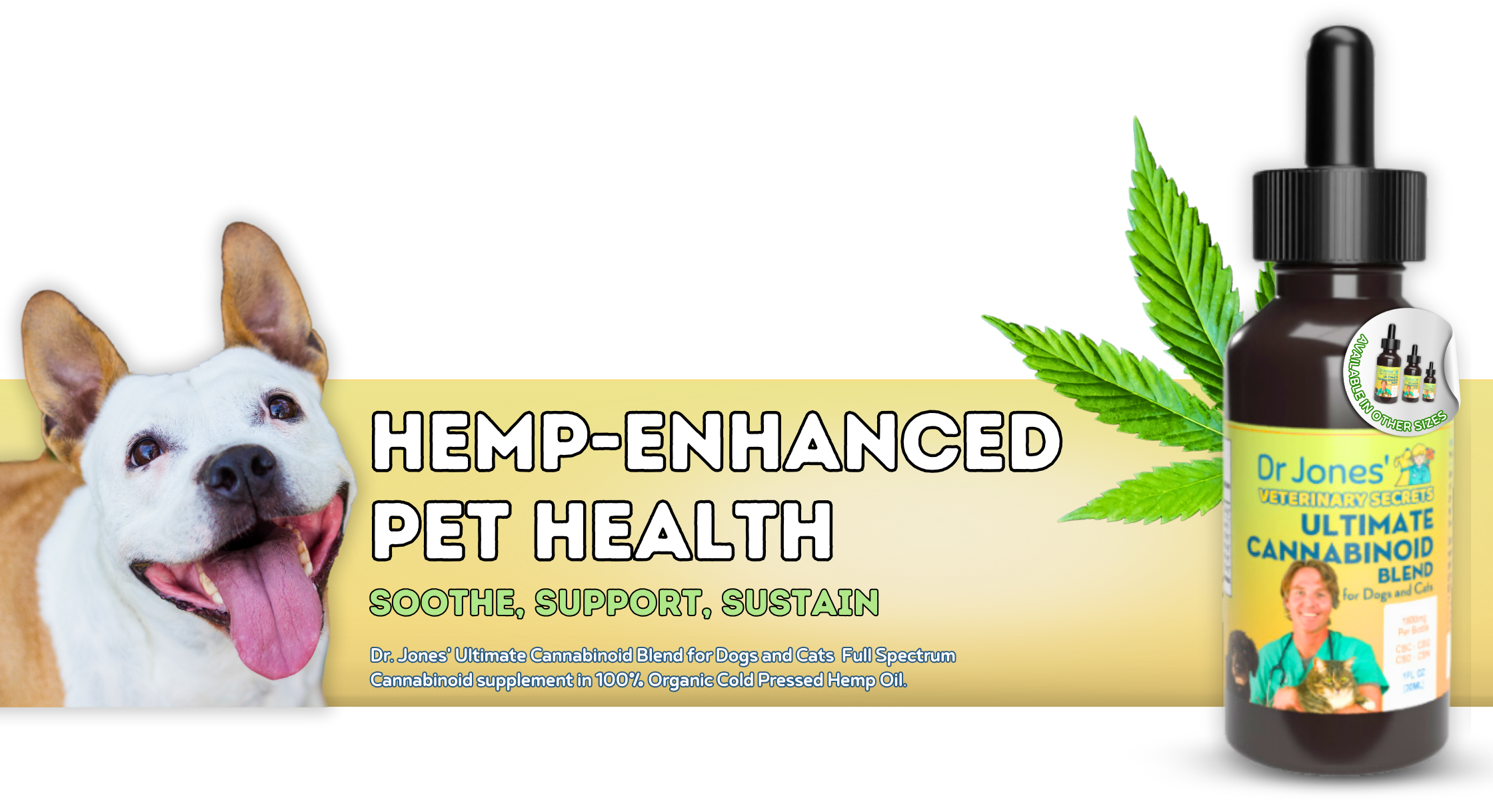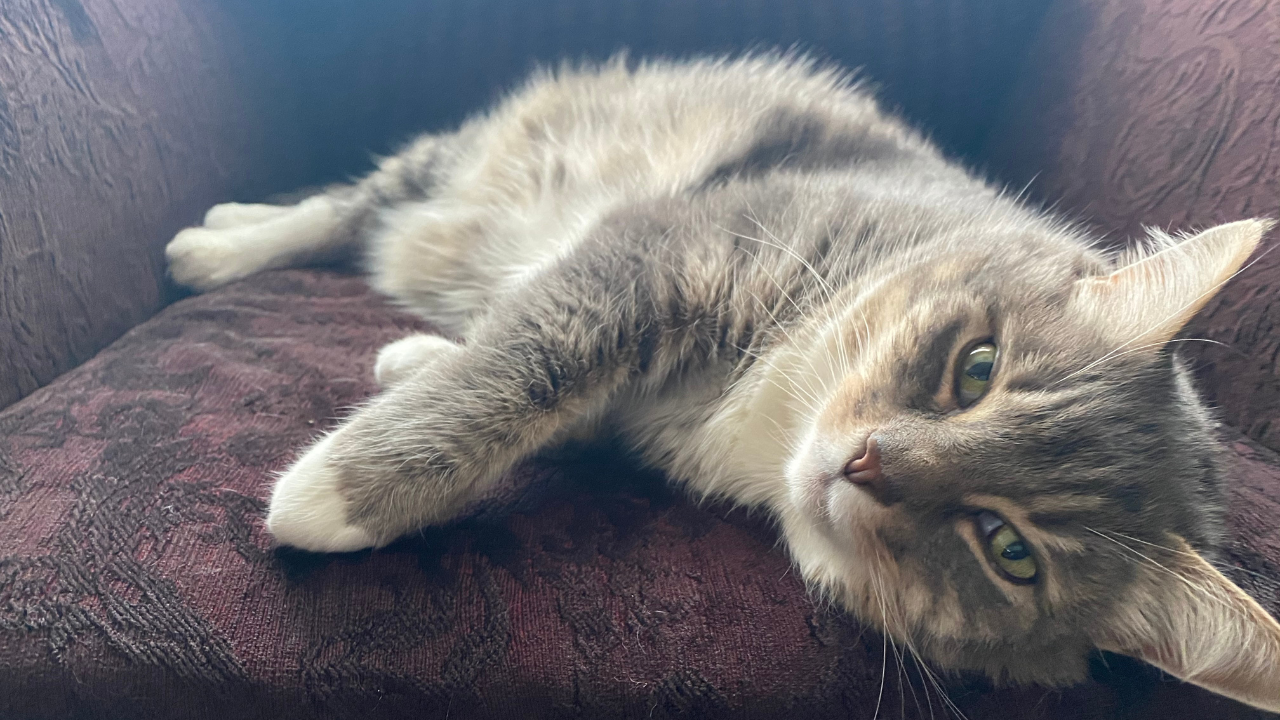Dont eat that! Toxicities in cats

Cats are very different from dogs, including what toxins they are sensitive to.
The common anti-inflammatories given to dogs can be extremely toxic to our cats – you really should look at other options.
1st consider CBD (cannabidiol). It is an effective pain reliever, and it’s safe for cats.
You can try Dr Jones’ ULTIMATE CBD here.
Premium Cannabinoid Care for Dogs and Cats- Shop Dr. Jones’ Ultimate Cannabinoid Blend!
Dr. Jones’ Ultimate Cannabinoid Blend for Dogs and Cats

Our supplement ULTIMATE Feline has both Glucosamine and Chondroitin, which have been shown to help with Arthritis.

6 Common Serious Cat Toxins That Many People Are Not Aware Of
As a veterinarian with years of experience treating cats, I’ve encountered numerous cases of poisoning from substances that many pet owners would never suspect are harmful. Some of these toxins are common household items that seem harmless but can have devastating effects on our feline friends. Here are six common toxins that every cat owner should be aware of.
1. Acetaminophen (Tylenol)
Acetaminophen (also known as paracetamol) is a synthetic non-opiate pain reliever found in many households. Unfortunately, it is highly toxic to cats. Cats lack the enzyme necessary to metabolize acetaminophen, making them particularly susceptible to its harmful effects.
Even a small dose of 10 mg/kg can result in toxicity. To give you some perspective, a regular strength Tylenol tablet contains 325 mg, while extra-strength tablets contain 500 mg. Children’s and infants’ suspension liquids also contain this dangerous drug, with concentrations ranging from 32 mg/ml to 100 mg/ml.
Clinical signs of acetaminophen toxicity in cats include:
- Increased respiratory rate
- Pale or muddy mucous membranes
- Hypothermia
- Tachycardia (rapid heart rate)
- CNS depression
- Vomiting, anorexia, facial edema, and even coma
Without prompt treatment, ingestion can be fatal.
2. Lily Toxicity
While lilies may look beautiful in your home, they are deadly to cats. Easter lilies, tiger lilies, Asiatic hybrids, and daylilies are highly toxic to our feline companions. Ingesting just a couple of leaves or even part of a flower can lead to fatal kidney failure in cats.
Signs of lily toxicity can begin within 1-3 hours after ingestion and include:
- Salivation
- Vomiting
- Anorexia
If untreated, the situation can progress to kidney failure within 12-36 hours, characterized by excessive thirst, urination, dehydration, and eventually, no urine production (anuric renal failure).
Holistic Health for Your Cat with Dr. Jones’ Ultimate Feline Health Formula- Shop now!
Dr. Jones’ Ultimate Feline Health Formula

3. Phosphate Enemas
Constipation is a common issue in cats, and many owners turn to over-the-counter remedies like Fleet enemas to help. Unfortunately, Fleet enemas contain sodium phosphate and biphosphate, which can be highly toxic to cats. The assumption that children’s products are safe for cats is a common and dangerous misconception.
Clinical signs of phosphate enema toxicity can appear within an hour and include:
- Lethargy
- Ataxia (unsteady movement)
- Seizures
- Arrhythmias
This toxicity can be fatal, so it’s crucial to consult with your vet before administering any enema to your cat.
4. Kaopectate and Pepto-Bismol Toxicity
Many pet owners reach for medications like Kaopectate and Pepto-Bismol to help with their cat’s upset stomach. However, since 2002, these products have contained bismuth subsalicylate, a compound related to aspirin, which cats are unable to metabolize efficiently.
Just a tablespoon of extra-strength Kaopectate can deliver a toxic dose of salicylates to a 5 kg cat. Signs of toxicity include:
- Vomiting
- Diarrhea
- Abdominal pain
- Lethargy
- Severe gastrointestinal ulcers
5. Meloxicam (Metacam)
Meloxicam is an NSAID used to manage pain and inflammation in both humans and animals. While it was initially considered safe for cats when given at low oral doses, serious side effects, including kidney failure, have been reported.
In 2010, Boehringer Ingelheim Vetmedic recommended using meloxicam only as a one-time injection after surgery due to these risks. Repeated dosing can lead to severe adverse reactions, so always consult your vet for safer pain management options.
6. Benzocaine Toxicity (Topical Anesthetic)
Benzocaine, a common over-the-counter topical anesthetic, can also be toxic to cats. If it is absorbed through the skin or ingested, it can cause methemoglobinemia, a condition where the blood cannot carry oxygen effectively. Cats are particularly susceptible to this condition.
Signs of benzocaine toxicity may appear within 20-30 minutes and include:
- Lethargy
- Respiratory distress
- Cyanosis (bluish skin or gums)
In severe cases, benzocaine can also cause Heinz body anemia, further reducing the cat’s ability to carry oxygen.
I have seen many cases of toxicity in my practice, especially from acetaminophen (Tylenol). It is crucial to be aware of what is safe and what is not. Even some veterinarians may not be familiar with the unique toxins that affect cats. Always consult your vet before giving your cat any medication or exposing them to new plants or substances.
Supplements That Can Help Your Cat in Pain (Without Side Effects)
There are natural alternatives for pain management in cats that do not come with the same risks as NSAIDs or other medications. Two of my recommended supplements are:
-
CBD (Cannabidiol): This has been shown to be extremely beneficial for cats in pain and also serves as a natural anti-inflammatory.
-
Glucosamine and Chondroitin: These supplements may help reduce joint inflammation, making them excellent choices for our older, arthritic cats.
Stay informed, stay cautious, and always err on the side of safety when it comes to your cat’s health.
P.S. Always consult your veterinarian before administering any product or medication to your pets.


Thank you. So, I should treat her with cbd ? I don’t know how long a cat can fight a fever . Do you?
My daughter is getting your cbd product for the cat.
Warm Regards
Victoria